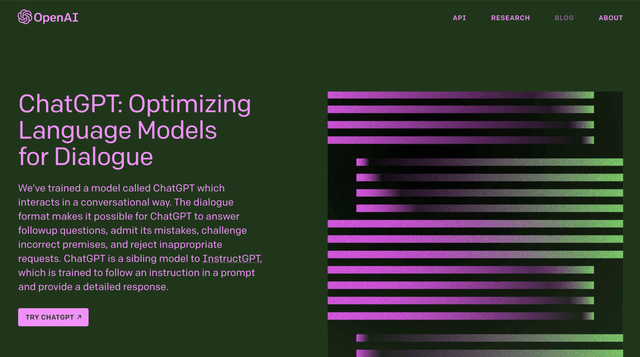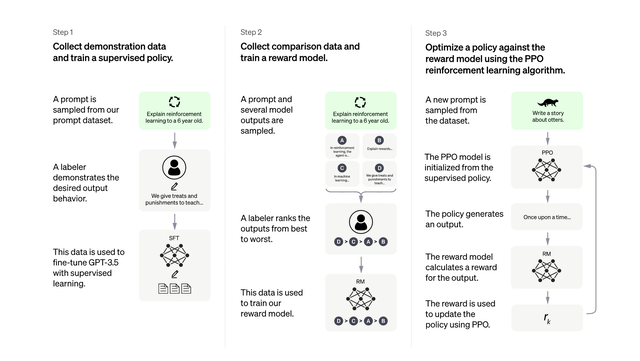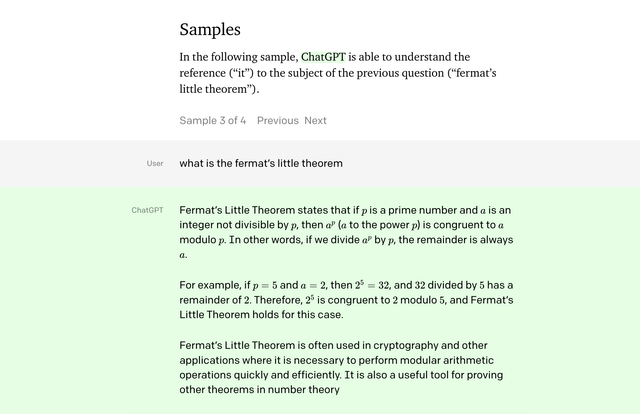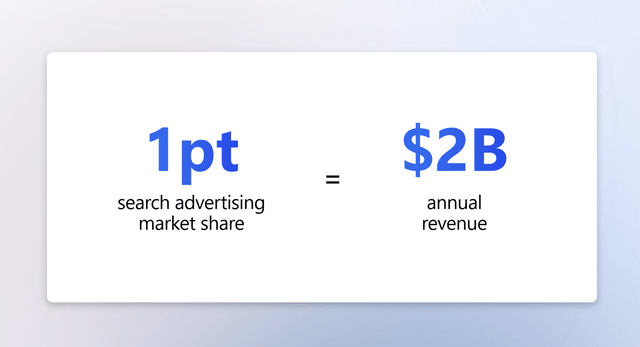Summary:
- Google is now down nearly 13% in a week as Microsoft is making its move to compete in search.
- ChatGPT significantly boosted the capabilities of Bing.
- I still think Google Search should have the upper hand thanks to its supporting ecosystem.
- However, Google’s financials will likely be impacted due to increased competition, especially the bottom line.
Leon Neal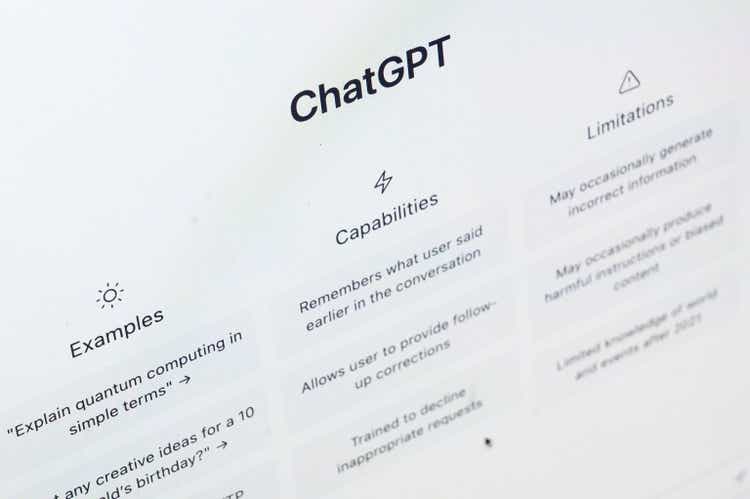
Enter ChatGPT
Google (NASDAQ:GOOG) has dropped over 10% in the past few days as Microsoft’s (MSFT) CEO Satya Nadella signals strong intentions to compete in the search space. In January, Microsoft announced a multi-billion investment into OpenAI, which gives them control of the company’s AI technology such as ChatGPT and Dall-E. The company plans to integrate ChatGPT, a generative conversational AI model, into numerous products such as Azure, GitHub, and most importantly Bing. The buzz surrounding ChatGPT is making people wonder whether Bing will become a viable threat to Google after the integration.
Sataya Nadella, CEO of Microsoft, on search competition
I just want us to innovate. We competed today. Today was a day where we brought some more competition to search. Believe me, I’ve been at it for 20 years, and I’ve been waiting for it. But look, at the end of the day, they’re the 800-pound gorilla in this. That is what they are. And I hope that, with our innovation, they will definitely want to come out and show that they can dance. And I want people to know that we made them dance, and I think that’ll be a great day.
Bing, the alternative search engine has been long forgotten by the public as Google dominated the space in the past decade. According to Similarweb (SMWB), Bing only has a market share of roughly 3% while Google accounts for over 91%. Google hasn’t had much competition but this may soon change. The integration with ChatGPT gives Bing much stronger capabilities in digesting queries and generating answers as the model is capable of understanding context. It is also trained with massive data sets which makes it excels at informational queries.
Google does have its own AI projects and ventures such as DeepMind, the creator of the infamous AlphaGo, and LaMDA, a conversational AI model. However, whether they are ready to be commercialized remains unknown. Google did recently announced BARD AI, its own experimental conversational AI service for search powered by LaMDA. But it seems like they are rushing to launch it just to fight back the public’s skepticism of its AI technology. During the product showcase last week, BARD AI seemingly gave off the wrong answer which makes people further question their readiness in this race. The share price plummeted 7% in the following trading session.
Bing vs Google Search
Do I think Bing will replace Google? I do not think so. Is it a thesis-changing threat? Probably not. ChatGPT is great at answering specific questions (for example mathematic or scientific formulas) but Google is still better at answering generic questions as it has a much larger ecosystem of publishing sites. For example, if you search “best beach in Europe”, ChatGPT will find THE best beach from its data but Google will show you the top sites with their respective suggestions, which is what most users want to see.
Bing with ChatGPT should work well for specific use cases such as studying or researching but in general Google Search should still be better off for most people, at least for now. Besides, Google still has a strong ecosystem surrounding search. Most Google Search users also use Gmail, Google Maps, Google Drive, YouTube, and Google Images, which complement each other as they are all operated under one unified system. Most people will not bother to switch to Bing as it increases the inconvenience of using these services.
Financial Impacts
However, I do think this will impact Google financially, not so much its fundamentals. Google Search has been generating fat margins over the years as search is essentially a monopolistic market with little to no competition. The company does not have to spend much on expenses thanks to its reach and they also have strong pricing power against advertisers, which gives them strong operating leverage. This may be going to change with Bing aggressively coming after them. On the cost end, Google’s integration of BARD AI into search will substantially increase the use of data centers as AI requires much more computing power. Datacenter costs have been increasing as mentioned in the latest earnings call and the integration will likely further boost the figure which compresses the gross profit margin.
Google will now also have to spend more on S&M (sales and marketing) and R&D (research and development). Microsoft is different from other competitors as it has strong distribution channels and a wide reach. The company cannot afford to lose any market shares therefore it has to spend more on marketing to retain users. It probably won’t be directly on search as it isn’t technically a “product”, it will probably be spent on surrounding services in order to strengthen the ecosystem. R&D is also critical in order to win the AI race. No one has any idea who currently has the upper hand but surely the spending on R&D should accelerate. These factors combined will increase overall operating expenses and lowers the operating margins.
Sataya Nadella, CEO of Microsoft, on margins
Very few times in history do opportunities like that show up where you suddenly can start a new race with a base where every day is incremental gross margin for you and someone else has to play to protect it all: every user and all the gross margin.
Advertising revenue is also a wildcard. Advertisers usually pay according to audiences’ eyeballs. Advertising budgets are often fixed and the matter is how much percentage of the pie can you get. Google has strong pricing power as it gets all the attention from the web. However, if Bing manages to generate strong traction and garner attention from audiences, advertisers may shift some of their budgets from Google to Bing. If Google does lose some market share to Bing, this will also reduce its ad impression as traffic drops. This will in turn reduce Google’s advertising revenue.
Doron Gerstel, CEO of Perion (PERI), on Bing’s opportunity
With regard to search, our expectation is that ChatGPT will revolutionize Bing search capabilities by providing more advanced and intuitive search experiences for its users, better meeting their needs and expectations. We believe that such superior search results will increase advertiser spending as a result.
Final Thoughts
This is an asymmetric war in my opinion. Microsoft has the upper hand as Bing has nothing to lose even if it fails badly. Yet it will generate massive returns even if it takes just one percentage point of market share from Google. For context, Microsoft estimates a one percent market share win equates to an incremental annual revenue of $2 billion. On the other hand, although there isn’t much to win, Google still has to defend at all costs as it has everything to lose. I don’t know how this will play out but it will likely impact Google’s profitability even if they eventually win. Google stock is cheap on a historical basis but this does not account for the potential downward reversion in the bottom line due to competition. There are too many uncertainties at the moment therefore I rate the company as a hold.
Disclosure: I/we have no stock, option or similar derivative position in any of the companies mentioned, and no plans to initiate any such positions within the next 72 hours. I wrote this article myself, and it expresses my own opinions. I am not receiving compensation for it (other than from Seeking Alpha). I have no business relationship with any company whose stock is mentioned in this article.

